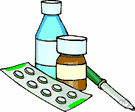phar·ma·col·o·gy
(fär′mə-kŏl′ə-jē)n.
1. The science of drugs, including their composition, uses, and effects.
2. The characteristics or properties of a drug, especially those that make it medically effective.
phar′ma·co·log′ic (-kə-lŏj′ĭk), phar′ma·co·log′i·cal (-ĭ-kəl) adj.
phar′ma·co·log′i·cal·ly adv.
phar′ma·col′o·gist n.
American Heritage® Dictionary of the English Language, Fifth Edition. Copyright © 2016 by Houghton Mifflin Harcourt Publishing Company. Published by Houghton Mifflin Harcourt Publishing Company. All rights reserved.
pharmacology
(ˌfɑːməˈkɒlədʒɪ)n
(Medicine) the science of drugs, including their characteristics and uses
pharmacological, pharmacologic adj
ˌpharmacoˈlogically adv
ˌpharmaˈcologist n
Collins English Dictionary – Complete and Unabridged, 12th Edition 2014 © HarperCollins Publishers 1991, 1994, 1998, 2000, 2003, 2006, 2007, 2009, 2011, 2014
phar•ma•col•o•gy
(ˌfɑr məˈkɒl ə dʒi)n.
the science dealing with the preparation, uses, and esp. the effects of drugs.
phar`ma•co•log′i•cal (-kəˈlɒdʒ ɪ kəl) phar`ma•co•log′ic, adj.
phar`ma•col′o•gist, n.
Random House Kernerman Webster's College Dictionary, © 2010 K Dictionaries Ltd. Copyright 2005, 1997, 1991 by Random House, Inc. All rights reserved.
phar·ma·col·o·gy
(fär′mə-kŏl′ə-jē) The scientific study of drugs and their effects, especially in the treatment of disease.
The American Heritage® Student Science Dictionary, Second Edition. Copyright © 2014 by Houghton Mifflin Harcourt Publishing Company. Published by Houghton Mifflin Harcourt Publishing Company. All rights reserved.
pharmacology, pharmacologia
the branch of medical science that studies the preparation, uses, and effects of drugs. — pharmacologist, n. — pharmacologic, pharmacological, adj.
See also: Drugsthe science of drugs, their preparation, uses, effects, and dispensation. — pharmacologist, n. — pharmacologic, pharmacological, adj.
See also: Remedies-Ologies & -Isms. Copyright 2008 The Gale Group, Inc. All rights reserved.
pharmacology
The science of drugs and their uses.
Dictionary of Unfamiliar Words by Diagram Group Copyright © 2008 by Diagram Visual Information Limited
ThesaurusAntonymsRelated WordsSynonymsLegend:
| Noun | 1. |  pharmacology - the science or study of drugs: their preparation and properties and uses and effects pharmacology - the science or study of drugs: their preparation and properties and uses and effectstincture - (pharmacology) a medicine consisting of an extract in an alcohol solution medical specialty, medicine - the branches of medical science that deal with nonsurgical techniques pharmacokinetics - the study of the action of drugs in the body: method and rate of excretion; duration of effect; etc. posology - the pharmacological determination of appropriate doses of drugs and medicines psychopharmacology - the study of drugs that affect the mind toxicology - the branch of pharmacology that deals with the nature and effects and treatments of poisons formulary, pharmacopeia - (pharmacology) a book containing a compilation of pharmaceutical products with their formulas and methods of preparation; "postexposure prophylaxis is an integral part of the pharmacopeia in preventing severe disease after acute infections" decoction - (pharmacology) the extraction of water-soluble drug substances by boiling percutaneous, transcutaneous, transdermal, transdermic - through the unbroken skin; refers to medications applied directly to the skin (creams or ointments) or in time-release forms (skin patches); "transdermal estrogen"; "percutaneous absorption" |
Based on WordNet 3.0, Farlex clipart collection. © 2003-2012 Princeton University, Farlex Inc.
Translations
Collins Spanish Dictionary - Complete and Unabridged 8th Edition 2005 © William Collins Sons & Co. Ltd. 1971, 1988 © HarperCollins Publishers 1992, 1993, 1996, 1997, 2000, 2003, 2005
Collins English/French Electronic Resource. © HarperCollins Publishers 2005
pharmacology
n → Pharmakologie f
Collins German Dictionary – Complete and Unabridged 7th Edition 2005. © William Collins Sons & Co. Ltd. 1980 © HarperCollins Publishers 1991, 1997, 1999, 2004, 2005, 2007
Collins Italian Dictionary 1st Edition © HarperCollins Publishers 1995
phar·ma·col·o·gy
n. farmacología, estudio de drogas, medicamentos, su naturaleza, origen, efectos y usos.
English-Spanish Medical Dictionary © Farlex 2012
pharmacology
n farmacología, estudio de los medicamentosEnglish-Spanish/Spanish-English Medical Dictionary Copyright © 2006 by The McGraw-Hill Companies, Inc. All rights reserved.